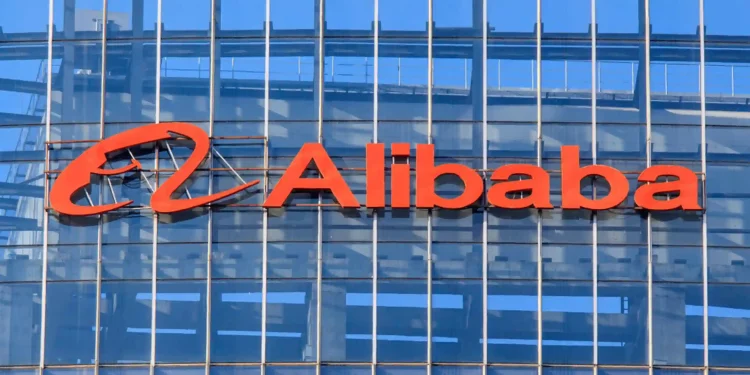Alibaba, the Chinese multinational tech conglomerate recently announced its decision to become a major holding company, in a significant overhaul, with six different business groups. The move could potentially indicate the breakup of the country’s biggest e-commerce firm. China’s tech industry and private businesses went through some severe phases during the last two years. Alibaba’s decision to restructure is definitely a big one and seems like it’s being coordinated by the regulators.
Alibaba and Six Business Units
Alibaba’s recent shakeup and its decision to split into six business units are followed by Beijing’s clampdown on Chinese tech giants. The new changes would be introduced with a separate chief executive and board for each unit. These changes could also lead Alibaba to adopt separate public listings. The interesting part is the announcement came one day after Jack Ma made a public appearance in China after years and this visit is expected to improve investor confidence about China’s recovering ties with the country’s private sector.
In the revamp, Alibaba itself would become a holding company and “unlock shareholder value and foster market competitiveness”, reports the Financial Times. As a result, shares of Alibaba rose 11 percent in New York with a market capitalization of $250 billion.
The six new units, under the revamp, will be dedicated to e-commerce, local services, cloud computing, media, digital commerce, and logistics. In a letter to the employees’ chief executive, Daniel Zhang stated that the market is the best litmus test, “and each business group and company can pursue independent fundraising and IPOs when they are ready,” reported FT.
He also added that the company is welcoming new opportunities for growth through the restructuring. Daniel Zhang will remain as the chief executive of Alibaba holding group and will also head the company’s cloud business. The company’s main business units, Tmall ecommerce and Taobao, will be owned by the main company. Analysts estimated that the businesses were worth $137 altogether.
A Chinese Strategy
Alibaba’s restructuring could be seen as a sign of the still persistent effort of regulators to reduce the monopolistic nature of such tech giant companies and regulate their power. The regulators also urge private companies to create more job opportunities in an effort to boost economic production.
Jack Ma, the co-founder of Alibaba had been keeping a low profile since the Chinese government started repressing the tech sector in 2020. The chief investment officer of Kaiyuan Capital, Brock Silvers, stated that the company’s present revamp has been orchestrated by Beijing. “This idea is reinforced by Jack Ma’s sudden reappearance, which now seems like a planned media event intended to boost market sentiment at a critical moment,” he added.
The plans seemed to have worked as the shares of the company rose on Wall Street following the announcement of the changes and gained in the Asia Pacific region. Jack Ma, as the co-founder of one of the biggest tech conglomerates in China, is considered the face of the tech industry and the government’s support for private enterprises. His presence is seen as a more encouraging approach from the government to the private sector. This all conveniently happens at a time when the Chinese economy requires a major economic boost.
Jack Ma in 2020, criticized the nation’s financial regulatory system for its rigid policies towards the small businesses of the country. And for speaking against the government practices, the authorities decided not to proceed with Ant Group’s intended $35 billion IPO at the last minute. Later on, the big tech companies fell for the regulatory crackdown followed by a consumption of China’s most powerful private companies and erasing a large number of their market values.
The government is now planning to improve growth and reinstate confidence as China is facing severe economic challenges after three years of strict Covid-19 protocols and subsequent lockdowns. The chief economist of Grow Investment Group, Hong Hao stated that Alibaba’s restructuring is a part of the government’s strategy to improve confidence in the private sector. Chinese leader Xi Jinping in a recent policy shift encouraged the government to aid private businesses, calling on business leaders and entrepreneurs to play a role in supporting tech innovation and growth so China can counter “suppression” and “containment” from the West.
The Inflow of Foreign Funds
In the wake of Alibaba’s restructuring, Foreign investors are steadily increasing and this could be seen as a sign of the governments melting attitude towards businesses as the economy is improving. The net foreign buying of the country’s stock has increased since Alibaba announced its revamp. The MSCI China index gained 4.5% in March while the Shanghai Composite closed with a 5.9% gain, which is its best quarter in more than two years.
The Bottom Line
Chinese regulations on private enterprises and small-scale businesses have been particularly hard during the past few years. The economy, as a result, suffered a huge setback due to strict Covid curb regulations brought in. Alibaba’s revamp comes at a time when China is putting its efforts to scale up the country’s economy. The restructuring plan ultimately helps to limit the monopoly power which was always Beijing’s concern. During the years of major curbs, China sought to reduce the monopolistic nature of many tech giants by levying them with heavy fines and demanding some firms a complete overhaul. So, Alibaba’s major revamp could be considered as the government’s effort to limit the monopoly power.
[stock_market_widget type=”card” template=”basic” color=”#5679FF” assets=”BABA” display_currency_symbol=”true” api=”yf”]

















